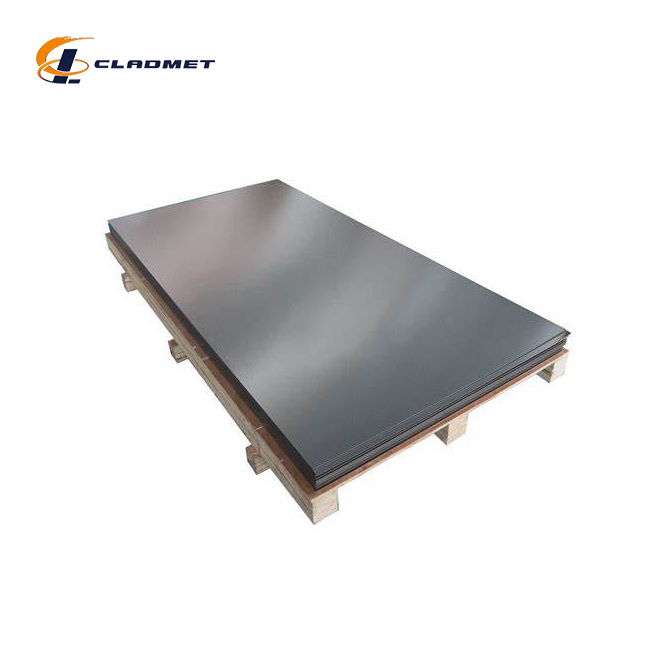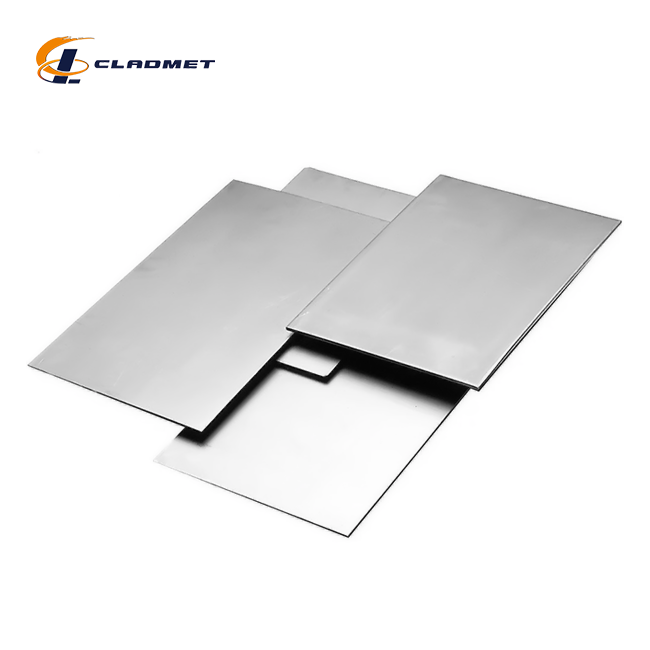Why Is Titanium Sheet Thickness Important in Engineering Applications?
 2025-07-22 21:59:26
View:389
2025-07-22 21:59:26
View:389The thickness of titanium sheets represents one of the most critical factors determining their performance, durability, and suitability for specific engineering applications. In modern industrial environments, where precision and reliability are paramount, understanding the relationship between titanium sheet thickness and application requirements has become essential for engineers and manufacturers worldwide. The significance of proper thickness selection extends beyond mere mechanical properties, influencing everything from corrosion resistance to manufacturing costs and structural integrity. When engineers specify titanium sheets for demanding applications in aerospace, chemical processing, marine environments, and power generation, the thickness parameter directly impacts load-bearing capacity, thermal conductivity, and long-term performance characteristics. This comprehensive analysis explores the multifaceted importance of titanium sheet thickness in engineering applications, examining how this fundamental specification influences design decisions, operational efficiency, and overall project success across diverse industrial sectors.

Mechanical Properties and Structural Integrity
Load-Bearing Capacity and Thickness Correlation
The relationship between titanium sheet thickness and load-bearing capacity forms the foundation of structural engineering calculations in critical applications. When titanium sheets are employed in aerospace components, chemical processing equipment, or marine structures, the thickness directly determines the maximum stress levels the material can withstand without failure. Thicker titanium sheets naturally provide enhanced resistance to tensile, compressive, and shear forces, making them indispensable for applications requiring exceptional structural integrity. At Baoji JL Clad Metals Materials Co., Ltd., our titanium sheets ranging from 0.5mm to 50mm thickness offer engineers the flexibility to select optimal specifications for diverse structural requirements. The correlation between thickness and load-bearing capacity follows established engineering principles, where increased cross-sectional area translates to proportionally higher strength characteristics. This relationship becomes particularly crucial in applications such as pressure vessels, aircraft fuselages, and offshore platforms, where structural failure could result in catastrophic consequences. Our ISO 9001:2000 certified manufacturing processes ensure that each titanium sheet maintains consistent thickness tolerances, providing engineers with reliable mechanical properties for critical structural calculations.
Fatigue Resistance and Thickness Optimization
Fatigue resistance represents another critical aspect where titanium sheet thickness plays a decisive role in engineering applications. The cyclic loading conditions commonly encountered in aerospace, automotive, and industrial equipment demand materials capable of withstanding repeated stress cycles without developing crack propagation or structural degradation. Thicker titanium sheets inherently provide superior fatigue resistance due to their increased cross-sectional area and reduced stress concentration effects. This characteristic becomes particularly important in applications such as aircraft engine components, rotating machinery, and vibrating equipment, where millions of stress cycles occur throughout the operational lifetime. Our titanium sheets manufactured according to ASTM B265 and JIS H4600 standards demonstrate exceptional fatigue performance across various thickness ranges, from delicate 1mm applications to robust 50mm industrial components. The optimization of thickness for fatigue resistance requires careful consideration of loading patterns, environmental conditions, and expected service life, factors that our engineering team addresses through comprehensive material selection guidance and customized solutions.
Impact Resistance and Energy Absorption
The impact resistance characteristics of titanium sheets exhibit a direct correlation with thickness, making this parameter crucial for applications subjected to dynamic loading conditions or potential impact scenarios. Thicker titanium sheets possess superior energy absorption capabilities, effectively dissipating impact forces through controlled deformation mechanisms while maintaining structural integrity. This property becomes essential in applications such as protective barriers, military equipment, and transportation systems, where impact resistance can determine operational safety and equipment longevity. Our titanium sheets manufactured through advanced roll bonding and explosion bonding processes demonstrate exceptional impact resistance characteristics across the complete thickness spectrum. The energy absorption capacity increases exponentially with thickness, providing engineers with predictable performance parameters for critical design calculations. Applications in chemical processing environments, where equipment may be subjected to pressure surges or mechanical impacts, benefit significantly from properly selected titanium sheet thickness. Our PED and ABS certified manufacturing capabilities ensure consistent impact resistance properties, supporting engineers in developing robust solutions for demanding operational environments.
Corrosion Resistance and Environmental Performance
Passive Layer Formation and Thickness Effects
The formation and stability of titanium's protective passive layer represent fundamental mechanisms determining corrosion resistance in engineering applications. Titanium sheet thickness influences the passive layer characteristics through multiple mechanisms, including surface area effects, stress distribution, and electrochemical behavior in corrosive environments. Thicker titanium sheets provide enhanced passive layer stability due to reduced stress concentrations and improved structural support for the protective oxide film. This relationship becomes particularly significant in chemical processing applications, where aggressive media continuously challenge the passive layer integrity. Our titanium sheets manufactured with grades Gr1, Gr2, Gr5, Gr7, and Gr9 demonstrate superior passive layer formation characteristics across various thickness ranges, ensuring reliable corrosion protection in demanding industrial environments. The thickness-dependent passive layer behavior directly impacts long-term performance in applications such as heat exchangers, reaction vessels, and pipeline systems, where corrosion resistance determines operational efficiency and maintenance requirements. Our manufacturing processes, compliant with ASME, ASTM, and JIS standards, ensure optimal passive layer formation characteristics for each thickness specification.
Galvanic Corrosion Protection Through Thickness Selection
Galvanic corrosion represents a significant concern in engineering applications where titanium sheets interface with dissimilar metals, making thickness selection crucial for long-term performance. The thickness of titanium sheets influences galvanic corrosion behavior through cathode-to-anode area ratios and current distribution patterns in the electrochemical cell. Properly selected thickness minimizes galvanic corrosion risks while maintaining structural integrity and operational efficiency. This consideration becomes particularly important in marine applications, offshore structures, and chemical processing equipment, where multiple metallic components operate in corrosive environments. Our titanium sheets demonstrate exceptional galvanic compatibility characteristics, with thickness optimization providing additional protection against localized corrosion phenomena. The engineering team at Baoji JL Clad Metals Materials Co., Ltd. provides comprehensive guidance on thickness selection for galvanic corrosion mitigation, ensuring optimal performance in mixed-metal assemblies. Our advanced manufacturing technology and quality control procedures guarantee consistent galvanic behavior across all thickness ranges, supporting engineers in developing corrosion-resistant solutions for critical applications.
Environmental Stress Cracking and Thickness Considerations
Environmental stress cracking represents a complex failure mechanism where titanium sheet thickness plays a crucial role in prevention and mitigation strategies. The susceptibility to environmental stress cracking depends on the interaction between applied stresses, environmental conditions, and material thickness, making proper specification essential for long-term reliability. Thicker titanium sheets provide enhanced resistance to environmental stress cracking through improved stress distribution and reduced stress concentration effects. This characteristic becomes particularly important in applications exposed to hydrogen-rich environments, high-temperature conditions, or aggressive chemical media, where stress cracking can lead to catastrophic failure. Our titanium sheets manufactured through precision rolling processes demonstrate superior resistance to environmental stress cracking across all thickness ranges, providing engineers with reliable performance in challenging operational environments. The thickness-dependent stress cracking behavior requires careful consideration of operational parameters, environmental conditions, and safety factors, aspects that our technical team addresses through comprehensive material selection and application guidance.

Manufacturing Feasibility and Cost Optimization
Processing Limitations and Thickness Constraints
Manufacturing feasibility represents a critical consideration where titanium sheet thickness directly impacts processing capabilities, quality control, and production efficiency. Different thickness ranges require specific manufacturing approaches, with thinner sheets demanding precision handling and specialized forming techniques, while thicker sheets require enhanced processing capabilities and extended production cycles. Our manufacturing facility at Baoji JL Clad Metals Materials Co., Ltd. employs advanced roll bonding and explosion bonding processes capable of producing titanium sheets from 0.5mm to 50mm thickness, ensuring optimal processing conditions for each thickness specification. The manufacturing constraints associated with different thickness ranges influence design decisions, production scheduling, and quality control procedures, making thickness selection crucial for project feasibility. Thinner titanium sheets require specialized handling procedures to prevent deformation during processing, while thicker sheets demand enhanced forming capabilities and extended processing times. Our ISO 9001:2015 certified manufacturing processes ensure consistent quality across all thickness ranges, providing engineers with reliable materials for diverse application requirements. The processing limitations associated with extreme thickness ranges require careful consideration during design phases, ensuring compatibility between material specifications and manufacturing capabilities.
Economic Considerations and Thickness Optimization
The economic impact of titanium sheet thickness selection extends beyond material costs to encompass manufacturing efficiency, processing requirements, and long-term operational expenses. Optimizing thickness for specific applications requires balancing performance requirements with economic constraints, ensuring cost-effective solutions without compromising operational safety or reliability. Thicker titanium sheets generally involve higher material costs but may provide superior performance characteristics and extended service life, potentially reducing overall lifecycle costs. Our comprehensive approach to thickness optimization considers multiple economic factors, including material costs, processing requirements, installation expenses, and maintenance considerations. The economic analysis of thickness selection becomes particularly important in large-scale projects where material costs represent significant budget components. Our competitive pricing for bulk orders and customized solutions ensures optimal economic outcomes for wholesale customers across various industries. The thickness optimization process requires detailed analysis of performance requirements, operational conditions, and economic constraints, factors that our engineering team addresses through comprehensive consultation and customized recommendations.
Quality Control and Thickness Verification
Quality control procedures for titanium sheet thickness represent critical aspects of manufacturing excellence, ensuring consistent performance characteristics and regulatory compliance across all production batches. The verification of thickness specifications requires sophisticated measurement techniques and comprehensive testing protocols, particularly for applications demanding precise dimensional tolerances. Our quality control system incorporates advanced measurement technologies and rigorous testing procedures to verify thickness specifications throughout the manufacturing process. The thickness verification process includes multiple inspection points, from raw material evaluation to final product certification, ensuring compliance with specified tolerances and performance requirements. Our PED and ABS certified quality management system guarantees consistent thickness characteristics across all production batches, providing engineers with reliable materials for critical applications. The quality control procedures for thickness verification encompass dimensional measurements, mechanical property testing, and performance validation, ensuring comprehensive compliance with engineering specifications. Our commitment to quality excellence extends to continuous improvement initiatives, incorporating advanced measurement technologies and enhanced testing protocols to maintain industry-leading standards for thickness consistency and performance reliability.
Conclusion
The importance of titanium sheet thickness in engineering applications cannot be overstated, as it fundamentally influences mechanical properties, corrosion resistance, manufacturing feasibility, and economic viability. Proper thickness selection requires comprehensive understanding of application requirements, environmental conditions, and performance expectations, ensuring optimal material utilization and long-term reliability. The multifaceted relationship between thickness and performance characteristics demands careful consideration during design phases, with expert guidance ensuring successful project outcomes across diverse industrial applications.
Ready to optimize your next project with precision-engineered titanium sheets? At Baoji JL Clad Metals Materials Co., Ltd., we combine nearly four decades of manufacturing expertise with cutting-edge technology to deliver customized solutions that exceed your expectations. Our comprehensive OEM services, international certifications, and commitment to quality excellence make us your ideal partner for demanding engineering applications. Whether you require standard specifications or custom solutions, our team is dedicated to providing the precise thickness specifications your project demands. Contact us today at sales@cladmet.com to discuss your specific requirements and discover how our premium titanium sheets can enhance your engineering success. Let us help you transform your vision into reality with materials that perform when it matters most.
References
1. Donachie, M.J. (2000). "Titanium: A Technical Guide, 2nd Edition." ASM International, Materials Park, OH.
2. Lutjering, G. & Williams, J.C. (2007). "Titanium: Engineering Materials and Processes." Springer-Verlag, Berlin.
3. Boyer, R.R., Welsch, G. & Collings, E.W. (1994). "Materials Properties Handbook: Titanium Alloys." ASM International, Materials Park, OH.
4. Banerjee, D. & Williams, J.C. (2013). "Perspectives on Titanium Science and Technology." Acta Materialia, Volume 61, Issue 3.

_1737007724117.webp)
_1736996330512.webp)









